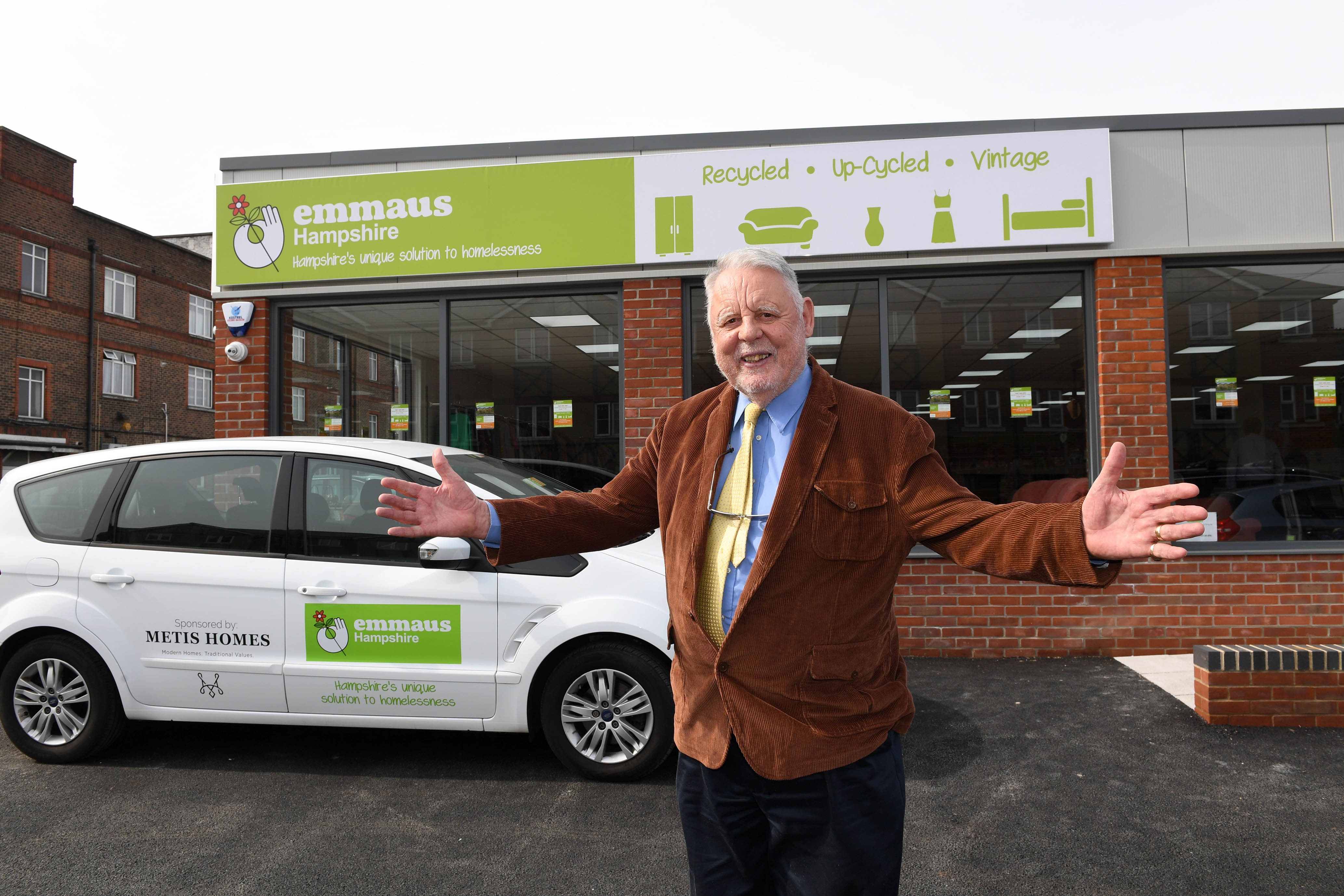News & Views
Saturday, 7 April, 2018New Shop Southampton

Terry Waite CBE opens new shop in Shirley, Southampton
Emmaus president and former hostage Terry Waite opened the new shop in Shirley, Southampton on Saturday 7th April. Terry joined founder Alison Thompson and CEO Nigel Samuels and 20 other invited guests at a celebratory opening of the new shop. Terry was joined by Alison’s young grandsons in cutting the ribbon. Since Monday 9th April Emmaus Hampshire has been offering the residents of Southampton quality preloved furniture, vintage clothing and eclectic bric-a-brac.
Terry Waite became president of Emmaus UK shortly after his release from captivity in Lebanon in 1992. He had spent 1763 days in captivity, the first four years of which were spent in solitary confinement.
Terry’s experience in captivity gave him a great insight into the misery, isolation, fear, boredom and despair that many homeless people go through. His empathy with those who have experienced homelessness and social exclusion makes him a much loved president.
“There’s a big myth that all homeless people are layabouts,” he says. “It’s just not true. I can’t stress this firmly enough: people from all walks of life end up on the street. I met my former sergeant major in an Emmaus community. He came out of the army. He lost his job, he lost his family and he was on the street.”
For Waite, the issue of homelessness is inextricably tied to that of personal dignity, and he has little patience for a society or political elite that doesn’t always understand this. “The first thing you have to do is enable people who have been on the streets, and who may have many difficulties, [to] have dignity as human beings,” he says.
Emmaus, a charity with a long history in France, established its first residential “community” in Britain in Cambridge just after Waite was released. There are now 20 communities across the UK, with more planned. Emmaus is not about providing a bed for a night or even finding someone an apartment to live in. Rather, it focuses on providing a community environment in a residential setting that fosters a route back into society.
“I want to make this point very strongly. It’s not sufficient just to give a handout to people. What you need to provide is a structure that enables them to get back into normal life. That’s what Emmaus does,” Waite stresses.
His interest in homelessness stems from his time as a student working at a shelter for men in Middlesbrough. “They got bed and breakfast. But then they were put out on the street and there was nothing for them. I thought there must be a better model. It was a revolving door.”
